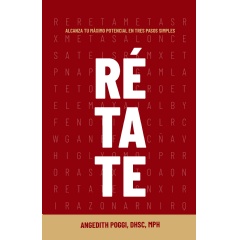kevin.gover@steptoe.com
Don’t play the game if you don’t know the rules
Posted: May 10, 2002 - 9:16am EST
by: Kevin Gover / Columnist / Indian Country Today
The Washington, D.C. Indian affairs community is abuzz over the so-called "influence-peddling scandal" involving Deputy Assistant Secretary for Indian Affairs Wayne Smith and his erstwhile friend, Phil Bersinger. Mr. Bersinger, according to Time magazine, wrote letters to two tribes offering to serve as a consultant (read, "lobbyist") on matters that were pending before the Department of the Interior, matters in which Wayne Smith was to play a key role. Bersinger wrote of his close friendship with Mr. Smith, "Wayne and I still vacation together and he stays with me at my home whenever he comes to Sacramento", and claimed that he could "accelerate" the tribes’ interactions with Interior and "achieve the [tribes’] desired result/action/determination." He indicated his willingness to represent the two tribes in their cases before Mr. Smith for a mere $1,000 per month in one case, and $25,000 per month in another.A few weeks ago, The New York Times ran a "puff piece" about another lobbyist here in D.C. by the name of Jack Abramoff. Mr. Abramoff was touted for his effectiveness in representing Indian tribes before Congress and the executive agencies of the federal government. His close relationships with executive officials and members of Congress make him one of the most effective tribal advocates in Washington, according to the Times. The article noted that tribes have paid hefty fees for Mr. Abramoff’s services, $150,000 to $300,000 per month.So, two lobbyists show up in the news, one for using his connections in Washington on behalf of tribes, and one for wanting to do so. The would-be tribal lobbyist is being investigated along with his high-ranking friend, and his tribal lobbying "career" is almost certainly at an end. The practiced lobbyist, on the other hand, has scored a marketing coup by having The New York Times sing his praises. So what’s the difference between Bersinger and Abramoff? There are many, of course, but the most significant at the moment is that Mr. Abramoff knows the rules of the game, and Mr. Bersinger does not.Washington is a high-context culture. There are numerous rules of conduct, many of them unwritten. How something is said is often more important than what is said, and sometimes what is not said is more important still. If you know the culture and you know the rules, you can operate effectively and profitably in Washington’s high-stakes political games. If you don’t know the rules, you can get yourself and your friends into a lot of trouble.
All lobbyists trade on relationships. Indeed, Washington runs on relationships. The relationships a lobbyist cultivates open doors and create opportunities to influence public officials.
Relationships arise in several contexts. Some are primarily personal and arise before a public official assumes office. Some are professional and arise from the official dealings between the public official and the lobbyist. Others are political and based mostly in the financial and other support the lobbyist provides at election time. Regardless of how the relationship arises, though, it is maintained only by trust. The public official must trust the lobbyist to tell the truth. The public official must trust the lobbyist to understand both the merits and the politics of the issues. Most of all, the public official must trust the lobbyist not to abuse their relationship.
When I served as Assistant Secretary for Indian Affairs, I would hear periodically that certain lobbyists claimed to have special access to me. None of them did. A few lobbyists did have special access to me, though. They were people that I respected and liked and knew before I took office. They never bragged about our friendship. They never asked for things that required me to take political risks without knowing the scope and gravity of those risks. They never compromised me with talk of how they raised money for political parties.Ethics in Washington must appear to be a rather flexible concept to the rest of the country. I got a lesson in ethical relativism earlier this year, when Congressman Chris Shays held a hearing of his House of Representatives Government Reform subcommittee to discuss methods of improving the process for federal recognition of Indian tribes. Shays had accused Clinton Administration officials, including me, of politicizing the federal recognition process and making decisions on the basis of political contributions to the Democratic Party. Both the General Accounting Office and the Inspector General for the Interior Department investigated these allegations but could produce no evidence that the decisions were influenced by political contributions.During the hearing, Congressman Chris Cannon from Utah questioned Assistant Secretary Neal McCaleb, but not about federal recognition. Instead, the Congressman asked McCaleb about a dispute between the Viejas Band of Kumeyaay and the Ewiiapaayp Band of Kumeyaay. The dispute concerned the possible development of a casino on lands in San Diego County owned by the Ewiiapaayp and located very near the Viejas reservation. Congressman Cannon took Viejas’ side in the dispute.
It seemed curious that a Congressman from Utah would take such an interest in a dispute between two California tribes, especially on an issue involving rival gaming enterprises. About ten minutes of research on the Federal Election Commission website yielded some interesting facts. It turns out that on Dec. 5, 2001, Congressman Cannon’s campaign fund received several contributions from Indian tribes and tribal lobbyists. Lobbying firms Greenberg Traurig and Shaw Pittman both made contributions, as did the Salt River Pima-Maricopa Indian Community, the Mississippi Band of Choctaw Indians, and of course, the Viejas Tribal Government.
Now, it is possible, but not likely, that Congressman Cannon met with representatives of each of the tribes, heard their arguments on the merits of the dispute, and decided as a matter of good public policy that Viejas should prevail. More likely is that Viejas and its lobbyists used their contribution to the Congressman’s campaign to gain access to the Congressman and explain to him their point of view on the matter, and that the Congressman never heard the other side of the story. While Congressman Shays was heralding his concern about Clinton Administration decisions allegedly driven by campaign contributions, he failed to take note of Congressman Cannon’s interest in the California inter-tribal gaming dispute or to wonder why he was so interested.None of this is unusual or unethical in the Washington world, and certainly none of it was illegal. Heck, it is not even remarkable. Why? Because the lobbyists and the tribes knew and followed the rules. Would-be lobbyists like Bersinger, on the other hand, don’t know these rules. They attempt crassly to trade on their friendship with a particular official. Every good lobbyist knows that bragging about your relationship with a public official jeopardizes the trust between the lobbyist and the public official. Indeed, the public official will likely take pains to demonstrate that a boastful lobbyist does not have special influence. The only thing more foolish than bragging about one’s relationship with a public official is to do so in writing. Bersinger behaved foolishly by Washington’s standards, and in doing so jeopardized his friend Wayne Smith.None of this is to say that Mr. Smith has done anything wrong. Indeed, the evidence of wrongdoing by Smith is little more than hearsay and inference. Certainly, there is no official act on his part that resulted from his old friend’s lobbying efforts, and there is no evidence at all that Smith benefited or stood to benefit from Bersinger’s lobbying enterprise. Still, the situation has that slight aroma that Washington loves, and all of us D.C. types are busily comparing rumors.It all reminds me of the investigation of Interior Secretary Babbitt’s decision not to permit three tribes to build an off-reservation casino in Hudson, Wisconsin. What got Secretary Babbitt in trouble was that a certain lobbyist, an "old friend" of the Secretary, was allowed a private meeting with Babbitt to discuss the matter. The lobbyist later claimed that Babbitt had revealed that the tribes who opposed the Hudson casino had donated many thousands of dollars to the Democratic National Committee. Matters got worse when certain anti-casino lobbyists stupidly bragged to their tribal clients that the lobbyists’ political connections in the DNC and the White House had resulted in Babbitt turning down the casino application. Babbitt was eventually cleared by an Independent Counsel appointed by Attorney General Reno, and a lawsuit brought by the petitioning tribes was settled and dismissed. Still, the matter was the low point of Babbitt’s administration, and it was all caused by a friend-turned-lobbyist.I wouldn’t hazard a guess about how the current "scandal" will turn out. Certainly it is a good sign that Smith himself requested an investigation. Moreover, there is intriguing evidence that Bersinger’s signature was forged on at least one letter to a tribe. But the most interesting question of all is, who gave the letters to Time magazine? A disgruntled tribal leader? A lobbyist concerned about competition from Bersinger? A lobbyist disappointed by a decision Smith has made? A lobbyist afraid of a decision Smith is going to make? The betting here is on the latter.
In the meantime, Deputy Assistant Secretary Smith might find wisdom in the words of Marechal Villars to France’s King Louis XIV: "Defend me from my friends; I can defend myself from my enemies." This is true especially when the friends want to play the game, but don’t know the rules.
Kevin Gover, a columnist for Indian Country Today, is a partner is the Washington, D.C. office of Steptoe & Johnson LLP. Mr. Gover’s practice focuses on federal law relating to Indians and on Indian tribal law. He is the former Assistant Secretary for Indian Affairs in the U.S. Department of the Interior.
###
-











No comments:
Post a Comment